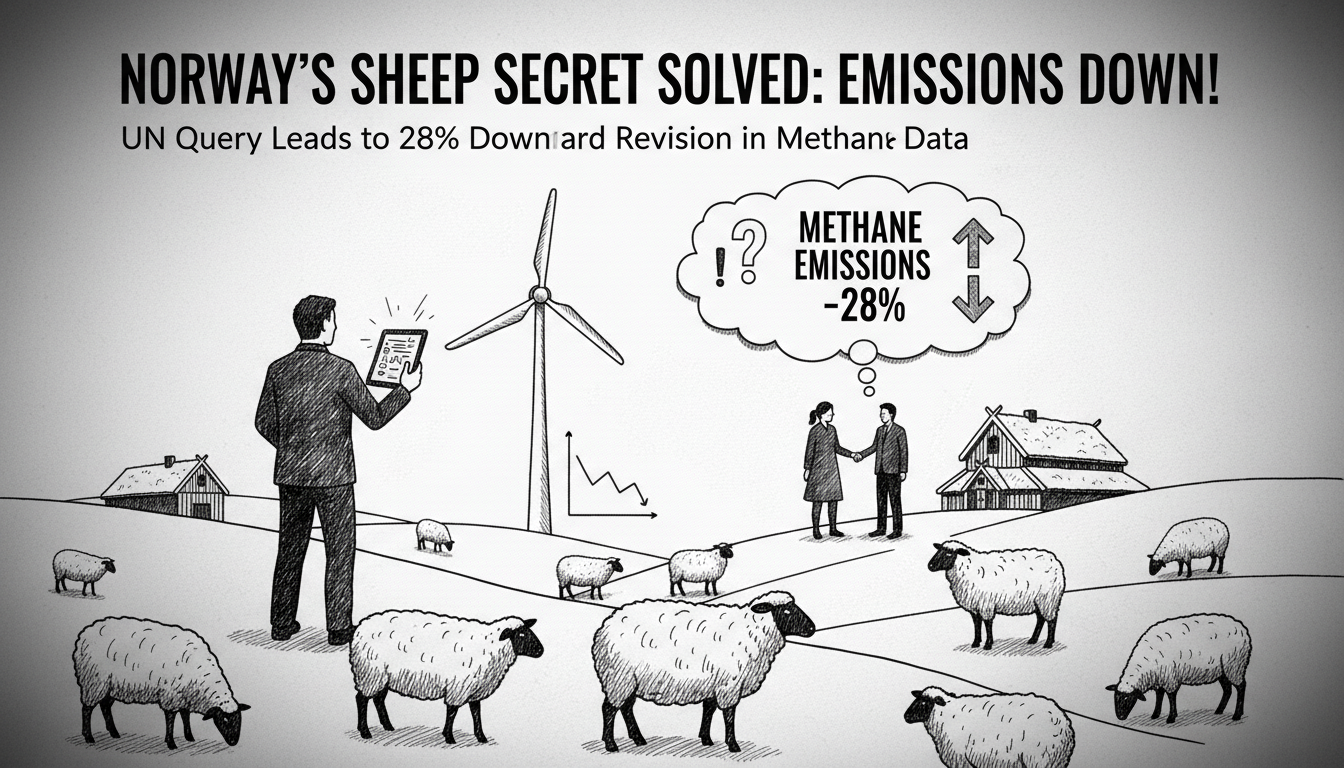Norwegian sheep farmers can breathe easier after official statistics revealed methane emissions from their flocks were significantly overestimated. The country's statistics bureau has adjusted methane emissions from sheep downward by 28 percent following an investigation triggered by United Nations questions about Norway's unusually high reported livestock emissions.
Professor Egil Prestløkken from the Norwegian University of Life Sciences uncovered the discrepancy while investigating why Norwegian sheep appeared to produce more methane than sheep in neighboring countries. He discovered calculations based on 20-year-old assumptions that dramatically overestimated how much feed Norwegian sheep consume.
Sheep farmer Knut Tore Nes Hjelle from Nordfjordeid in Western Norway never believed his animals posed a major environmental threat. "I've always considered sheep to be green," Hjelle commented. He keeps approximately 90 winter-fed sheep among Norway's total flock of nearly 900,000 animals.
The correction means Norway's agricultural emissions have decreased by 3 percent overall. The annual adjustment equals the carbon dioxide emissions from 75,000 gasoline-powered cars according to agricultural officials.
Norwegian sheep farmers have faced increasing pressure to reduce their environmental footprint amid global climate concerns. The livestock sector represents a substantial portion of Norway's agricultural emissions, though the country's total greenhouse gas emissions remain dominated by oil and gas production.
Professor Prestløkken expressed surprise that the miscalculation went unnoticed for so long. "It's somewhat strange we haven't seen this before," he noted. The researcher confirmed he has greater confidence in emission calculations for other livestock species, which have undergone more recent and thorough examination.
Berit Storbråten from Statistics Norway emphasized that emission accounting represents continuous improvement work. "We make adjustments every year because new knowledge constantly emerges," Storbråten explained.
The recalculations won't directly affect individual farmers' operations or regulations. However, accurate data helps shape effective climate policies and ensures farmers aren't burdened by incorrect assumptions.
Farmer Hjelle views the data correction as a positive development rather than undermining trust in experts. He believes adjusting numbers when errors are discovered demonstrates proper scientific practice. Hjelle remains committed to farmers taking their share of emission reductions as Norway works toward its climate commitments.
This incident highlights the challenges in accurately measuring agricultural emissions across different farming systems and regions. As countries implement more sophisticated climate policies, reliable data becomes increasingly crucial for fair and effective environmental regulation.

